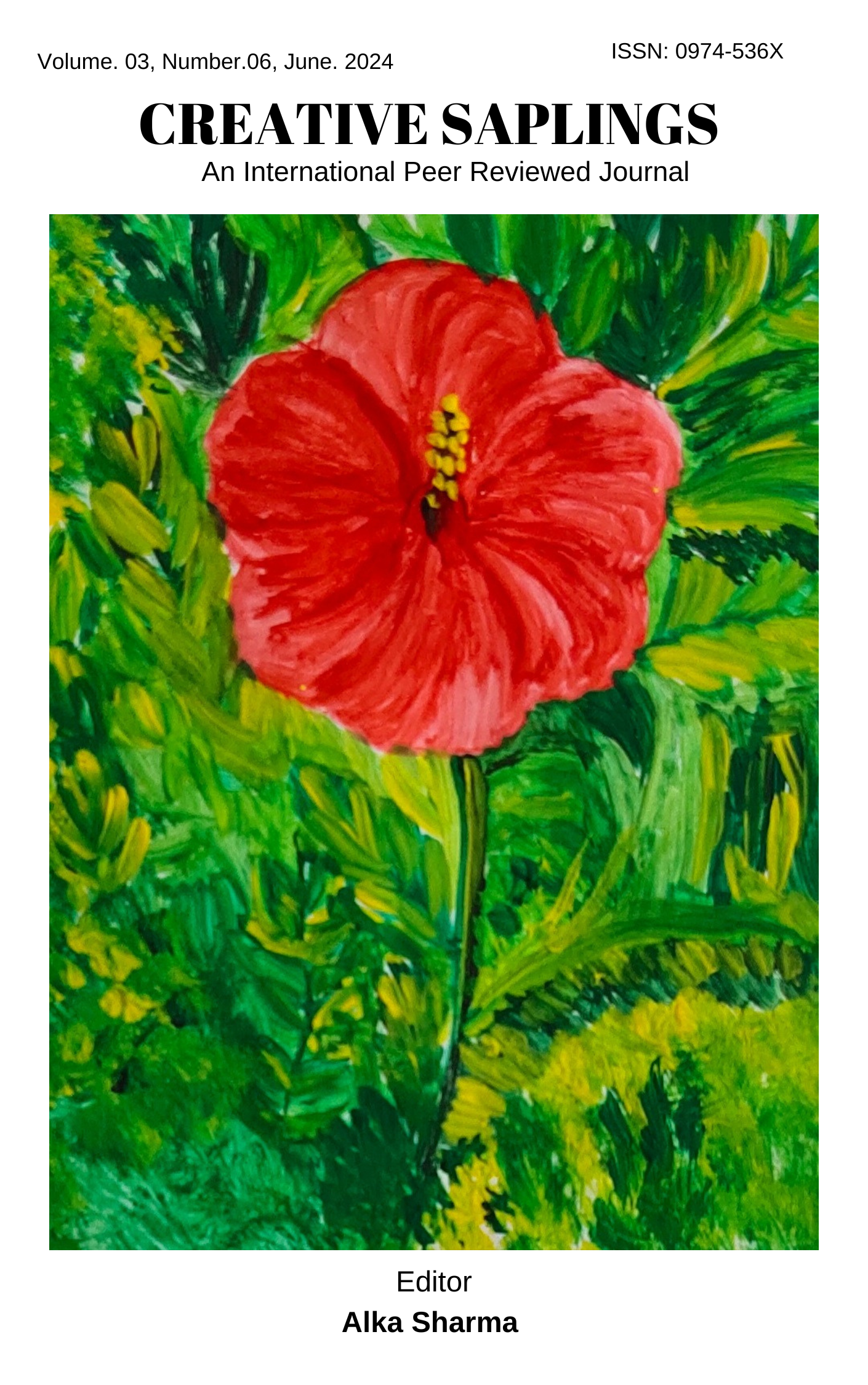Legal Literature: A Descriptive Analysis
DOI:
https://doi.org/10.56062/gtrs.2024.3.6.613Keywords:
COVID-19, Virtual Platform, William Shakespeare, Law, English Language Teaching.Abstract
‘Literature is the reflection of life.’ Thus, studying "Literature" is beneficial for one's spiritual renewal in addition to intellectual goals. The use of literary texts in language classes can foster the development of young students' critical thinking skills. The present paper emphasizes the value of "Literature" in a “Legal English” course. The "Bar Council of India" agrees that literature is important and has suggested that “Legal English” should be a compulsory subject in law schools. The authors have described how, during the COVID-19 pandemic, first-semester law school undergraduate students performed a dramatization of William Shakespeare's The Merchant of Venice using a "Virtual Platform" (Zoom). Upon completion of the class activity, the classroom goals of group scaffolding, creative use of literary language, and cross-cultural understanding were attained.
Downloads
References
Benston, A. N. (1979). Portia, the Law, and the Tripartite Structure of the Merchant of Venice. Shakespeare Quarterly, 30(3), 367–385. https://doi.org/10.2307/2869472
Coolidge, J. S. (1976). Law and Love in The Merchant of Venice. Shakespeare Quarterly, 27(3), 243–263. https://doi.org/10.2307/2869499
Friedler, Edith Z. “Shakespeare’s Contribution to the Teaching of Comparative Law.” Some Reflections on the Merchant of Venice.
Gaakeer, J. (2012). LAW AND LITERATURE – BATAVISCHE GEBROEDERS (1663). In J. Bloemendal & F.-W. Korsten (Eds.), Joost van den Vondel (1587-1679): Dutch Playwright in the Golden Age (pp. 459–488). Brill. http://www.jstor.org/stable/10.1163/j.ctt1w76wbf.26
Hamill, M. J. (1978). Poetry, Law, and the Pursuit of Perfection: Portia’s Role in The Merchant of Venice. Studies in English Literature, 1500-1900, 18(2), 229–243. https://doi.org/10.2307/450359
Hartman, G. (2011). The Tricksy Word: Richard Weisberg on The Merchant of Venice. Law and Literature, 23(1), 71–79. https://doi.org/10.1525/lal.2011.23.1.71
Hinely, J. L. (1980). Bond Priorities in The Merchant of Venice. Studies in English Literature, 1500-1900, 20(2), 217–239. https://doi.org/10.2307/450170
MacKay, M. (1964). The Merchant of Venice: a Reflection of the Early Conflict Between Courts of Law and Courts of Equity. Shakespeare Quarterly, 15(4), 371–375. https://doi.org/10.2307/2868095
Minda, G. (1995). Law and Literature. In Postmodern Legal Movements: Law and Jurisprudence At Century’s End (pp. 149–166). NYU Press. http://www.jstor.org/stable/j.ctt9qg2gf.13
Richards, J. C., & Rodgers, T. S. (2001). Approaches and methods in language teaching. Cambridge (Ingalterra) Cambridge University Press.
SCOTT, W. O. (2004). Conditional Bonds, Forfeitures, and Vows in “The Merchant of Venice.” English Literary Renaissance, 34(3), 286–305. http://www.jstor.org/stable/24463655
Sokol, B. J. (1992). “The Merchant of Venice” and the Law Merchant. Renaissance Studies, 6(1), 60–67. http://www.jstor.org/stable/24412407
Tomlinson, B., Burns, A., & Richards, J. C. (2001). Materials development. The Cambridge.
Travis, J. (2009). The Trials of Law and Literature. American Literary History, 21(2), 345–354. http://www.jstor.org/stable/20492306
Watt, G. (2014). Teaching Law and Literature [Review of A review of Teaching Law and Literature, by A. Sarat, C. O. Frank, & M. Anderson]. Law and Literature, 26(2), 231–247. https://www.jstor.org/stable/26770721
Weisberg, Richard. “Christianity Ends.” THE SIN OF SINGULARITY AND THE DIVINE ORIGINS OF HUMAN RIGHTS ADVOCACY, vol. 83, no. Winter, 2021. ISSN 0041-9915 (print) 1942-8405 (online), https://doi.org/10.5195/lawreview.2021.861.
WHITE, J. B. (1994). Teaching Law and Literature. Mosaic: A Journal for the Interdisciplinary Study of Literature, 27(4), 1–13. http://www.jstor.org/stable/24775796
Downloads
Published
Issue
Section
License
Copyright (c) 2024 Zeenat Taher, Rakesh Kumar Tripathi, Sharda Acharya

This work is licensed under a Creative Commons Attribution-NonCommercial 4.0 International License.





